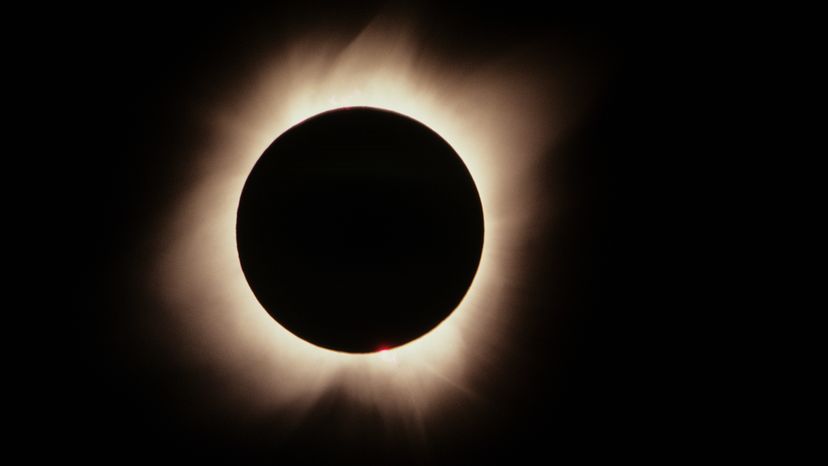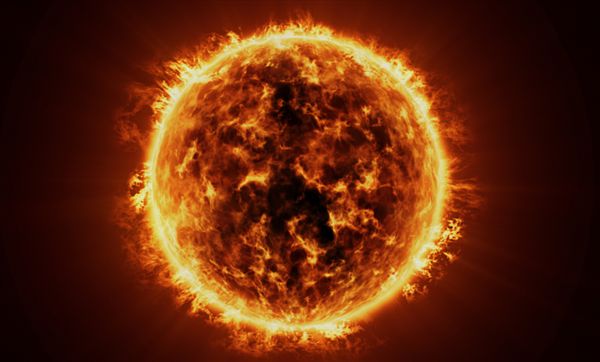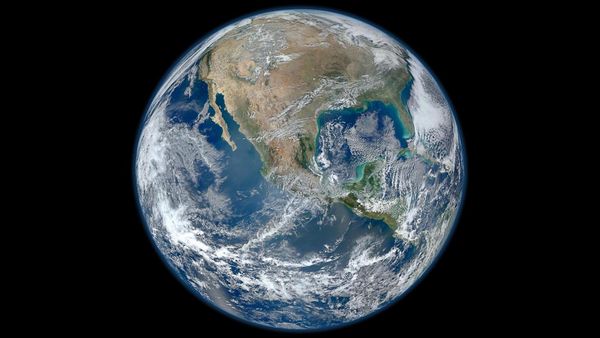
You've probably heard that staring at the sun is bad for your eyes. Well, you've heard right, because people who stare at the sun can go blind. When you were a kid, you may have performed the trick where you lit paper on fire using the sun and a magnifying glass. The light of the sun is so strong that if you concentrate it with a lens, you can actually start a fire.
In your eye, you have a lens. If you stare at the sun, this lens concentrates a spot of sunlight on your retina, and it burns it too. The light is so intense that it kills cells on your retina.
Advertisement
So much hype surrounds staring at a solar eclipse because, on a day-to-day basis, most folks know better than to stare up at the sun. The problem with a solar eclipse is that it's an extremely rare event. In fact, everybody in the United States has to wait until Aug. 21, 2017, for the next solar eclipse, whose path of totality will run from the west coast of Oregon to the east coast of South Carolina. Because these eclipses hardly ever happen, everyone wants to see them when they do occur. People may be curious or lack good impulse control, and think that a few seconds of looking at the eclipse won't do any harm. They may believe they're right at first, because no initial pain is associated with a retinal burn. Generally, it takes several hours for the symptoms to manifest and by then, the damage has already been done.
If you want to look directly at a solar eclipse, you're going to need some protective eyewear. You can view a total solar eclipse with your bare eyes, but only when the moon completely covers the face of the sun. And if you're really gung ho about looking up at the sun without special spectacles, you could watch the event's progression through a pinhole camera. Otherwise, NASA recommends putting on a pair of eclipse glasses that meets the current international standard for eye protection, because the ultradark lenses shield your peepers from the sun's harmful rays. And when gazing at the eclipse with binoculars or another magnification device, make sure the device is equipped with its own solar filter — eclipse glasses alone won't prevent eye damage from magnified sunlight [source: Cofield].
If you follow these tips, you can take joy in knowing that you're about to witness an awe-inspiring celestial show safely.
Advertisement

